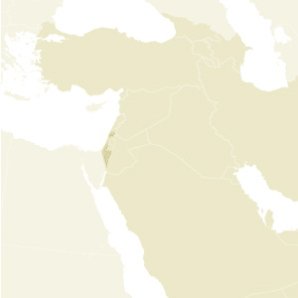
U.S. President Barack Obama send a letter to Prime Minister Benjamin Netanyahu, asking him to prolong the moratorium interrupting Israel’s colonial expansion into Palestine. Although it was not made public, Obama’s administration leaked the content to the Washington Institute of Near East Policy (WINEP), the think-tank attached to the American Israel Public Affairs Committee (AIPAC).
According to these sources, the terms of the letter were negotiated beforehand between the U.S. National Security Council and, on the Israeli side, Defense Minister Ehud Barack and Yitzhak Molcho, the envoy from the Prime Minister’s Office in charge of the negotiations.
The following was reportedly agreed on:
– the future of the Jewish settlements recently implanted in the Palestinian Territories would not be decided prior to the negotiations, but would be discussed in the course of the negotiations;
– the United States will veto every resolution proposal concerning Israel, regardless of its origin, for the duration of the negotiations, set to last for one year;
– Washington recognizes the legitimacy of Israel’s security demands and will not try to modify them. U.S. annual military aid to Israel, currently at 3 billion dollars, would be increased and Tel-Aviv could have acces to new weapons and surveillance systems, including satellite surveillance.
In return, Israel would accept to prolong the moratorium on the settlement freeze of new Jewish colonies for a period of two months.
As it is, these negotiations are totally devoid of legitimacy considering the lack of representation on the part of the Palestinian Authority’s de facto president, whose electoral mandate expired on 9 January 2009.
If the content of the letter is confirmed and, in addition, the negotiations were skewed, the outcome can only be detrimental to the Palestinians. Indeed,
– according to international law, the recent Jewish settlements are illegal and their removal is not negotiable; if anything, it’s their maintenance that should be subject to negotiation;
– throughout the year-long negotiations, Israel will enjoy complete impunity since no resolution against it will be adopted by the Security Council, irrespective of its behaviour;
– the two-state principle, defended by Barack Obama at the UN, does not mean that they will share the same rights. On the contrary, the territory of the future Palestinian state will be regarded as an extension of Israel’s strategic depth. Consequently, the Palestinian State will be unable to have its own army and will be required to open its territory at the behest of the Israeli army. Under such conditions, the Palestinian State will be nothing but a fiction, similar to the South African Bantustan of the Apartheid era; in other words, a legal screen allowing the continuation of an apartheid system between Palestinians and Israelis while preserving Israel from criticism.
Finally,
– with the moratorium lasting only two months and with Israel having total impunity, each extension of the moratorium will be to the detriment of the Palestinians, who will be compelled to make a further concession each time in order to obtain respect for their rights.
Once again, like on every previous occasion, the negotiations have been geared towards yielding new ground to Israel and not towards achieving peace.























Stay In Touch
Follow us on social networks
Subscribe to weekly newsletter